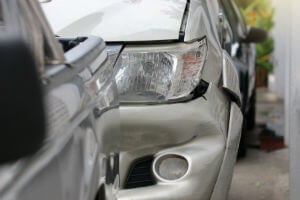Blog
Who is at Fault in a Rear-End Crash with More Than Two Vehicles?
Posted on behalf of Peter T. Nicholl in Car Accidents Published on May 23, 2019 and updated on March 7, 2022. Rear-end accidents happen quite often and they can result in much more severe injuries than people realize. For example, victims of these crashes could suffer from chronic neck pain for quite some time.
Rear-end accidents happen quite often and they can result in much more severe injuries than people realize. For example, victims of these crashes could suffer from chronic neck pain for quite some time.
When these crashes occur and involve more than two vehicles, it is sometimes difficult to determine who is at fault and how much fault each party has for the crash. There are even rare situations when the driver of the car that was hit last is partially at fault.
Our Maryland car accident lawyers discuss fault in rear-end accidents below to try to help you better understand these confusing situations. If you were injured in a rear-end accident, contact us to schedule a free, no obligation consultation today and learn about your legal rights.
Fault for Most Rear-End Accidents
Most of the time, the driver who crashes into the rear of a vehicle ahead will be entirely at fault. All drivers have a duty to drive safely, which includes following other vehicles at a safe distance.
You must leave enough space between your vehicle and any vehicles ahead to give yourself time and space to avoid hitting the lead car. If the driver ahead of you suddenly reacts to a road hazard by stopping or suddenly slowing down, and there is too small of a gap between both vehicles, you will probably hit the lead vehicle.
However, when more than two vehicles are involved in a rear-end accident, it becomes more difficult to determine who is at fault for damage to each vehicle. Sometimes the driver of the rear car is held liable for damages to all the vehicles involved.
A driver in the middle of a rear-end accident chain can also be at fault in certain situations. For instance, if the middle driver rear-ends the lead driver first, and another car rear-ends the middle driver’s car because he or she was unable to avoid the crash, the middle driver may be held responsible for the entire accident.
When multiple cars are involved, an extensive investigation is usually necessary to determine fault. Each party may have a different story, and each party’s actions could have been involved in the accident’s occurrence. Sometimes drivers all share some amount of responsibility for what happened.
When the Lead Driver is At Fault
In some cases, the driver at the front of a rear-end accident chain could be held responsible for the entire accident. Some scenarios where this may be the case include:
- The front driver suddenly reverses his or her vehicle
- The front driver makes a sudden stop to turn but fails to perform the turn
- The front driver experiences a flat tire but does not pull off the road or use hazard lights
- The front driver’s brake lights are not working, so approaching drivers are unable to detect the lead driver’s braking
Contributory Negligence in Maryland
Maryland is a state that follows a strict contributory negligence statute when it comes to recovering damages in an accident. If a party was in any way at fault for an accident, that party cannot recover compensation for damages.
This means that if your actions are found to have contributed to the accident, even if only minimally, you cannot recover damages from the responsible driver. To pursue a claim against the responsible driver in a rear-end accident case, you must not have played any role in the accident’s occurrence.
Contact Our Firm for Trusted Legal Assistance
If you were injured in a rear-end car accident, The Law Offices of Peter T. Nicholl may be able to assist you in pursuing financial compensation for damages. We are prepared to review your case and inform you of the legal options that may be available.
You can contact us right away to request your legal consultation, which is free of charge and puts you under no obligation to take legal action. We will not bill for representing you unless you receive financial compensation.
You can contact us online or by phone. Call 410-244-7005 or click on the case review form at the top right of this page.

